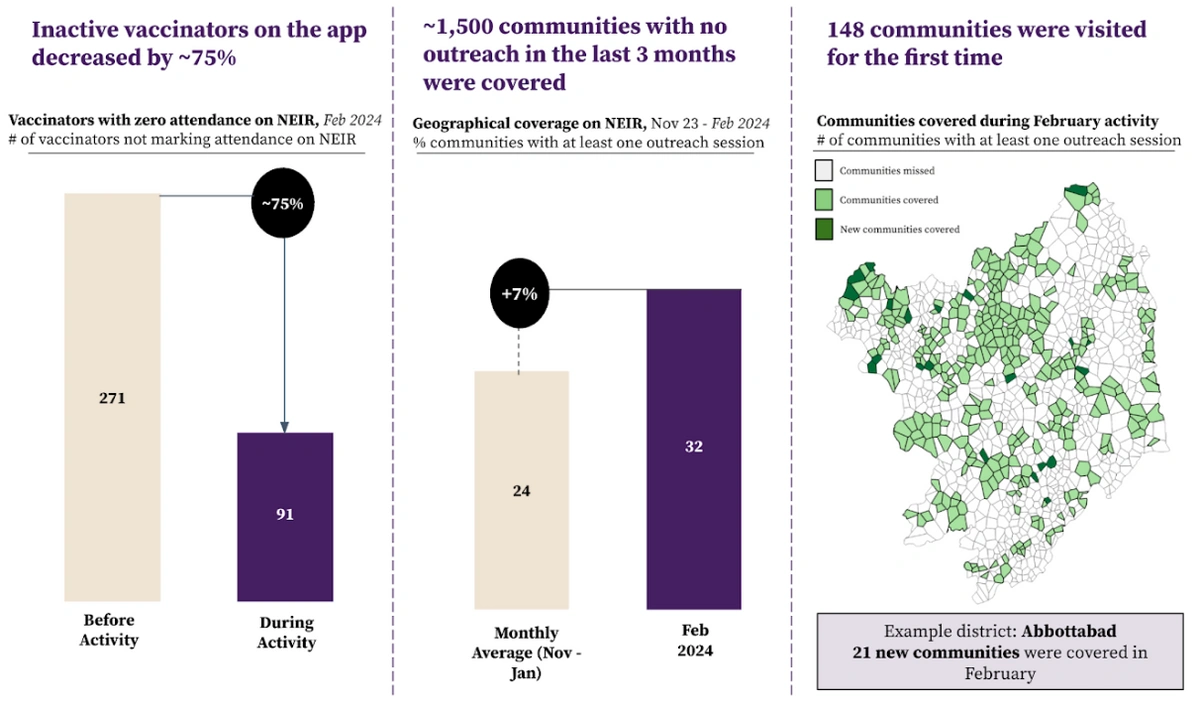
The vast majority of frontline staff work exceptionally hard. But governments require evidence of performance to address concerns.
Accountability is important in any health or education system. Health workers are often overburdened with tasks, but while recognising these challenges, it is important for governments to have access to good data and systems. This enables them to recognise strong performance and address areas of weakness.
In Quetta, Balochistan, vaccination coverage was only 30% in January 2024. At the time, in Pakistan, select vaccinators did not travel to destinations that were difficult to reach, such as remote health facilities. Many vaccinators were confused about where they had to travel. This confusion often led to vaccinators only vaccinating easy-to-reach communities, and as a result, children were missing out on much-needed vaccinations across the country.
By May 2024, vaccination coverage across Quetta had significantly increased. This turnaround happened because vaccinators were held to account and legitimate barriers were addressed. Evidence of their work output was provided by micropolygons, which track successful and unsuccessful vaccination sessions. This strategy was used across districts in Pakistan, including Khyber Pakhtunkhwa, with the data below showing improvements in the province:
Source: NEIR (National Electronic Immunization Registry) dashboard.
Online dashboards that enable manager visibility of frontline workers’ performance have effectively incentivised workers towards greater vaccine coverage improvement. Even where local conditions make it difficult for frontline workers to reach essential destinations, consultancies, partners and the government can provide support in directing them there.
The incentive of experiencing repercussions from managers and ministers creates dramatic improvements in outcomes. This will ensure that frontline workers find ways to reach destinations, even where the journey is difficult.
The incentive of experiencing repercussions from managers and ministers creates dramatic improvements in outcomes.
It is essential that health workers are held to account, with innovative technologies being one way of providing such accountability. However, frontline staff must also receive the help they need, in order to pursue the most challenging aspects of their roles, including travelling to difficult-to-reach destinations.



